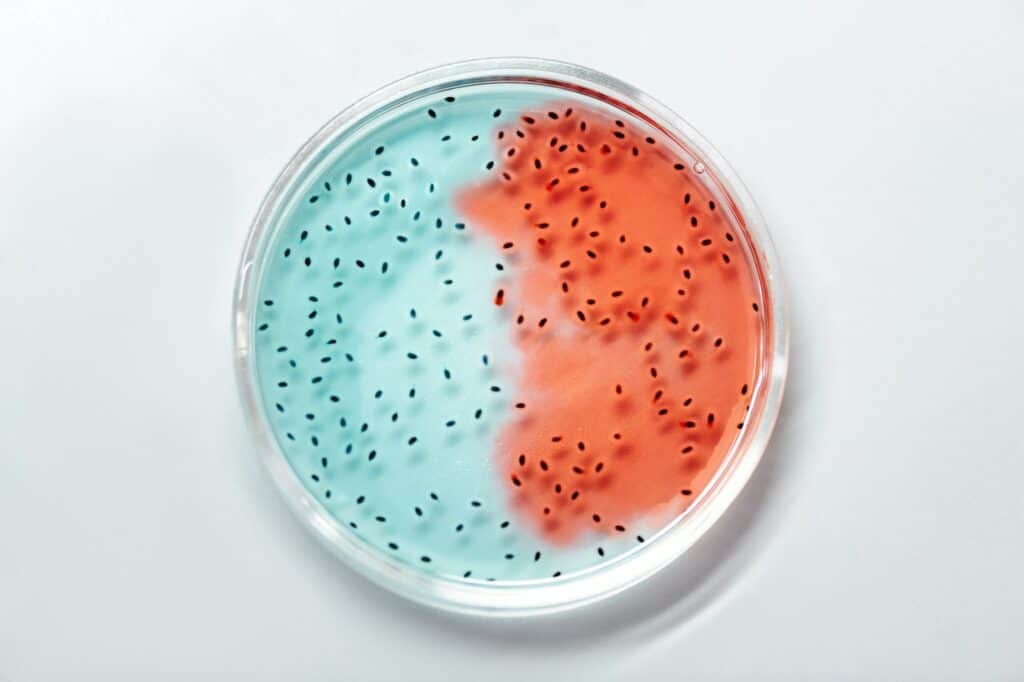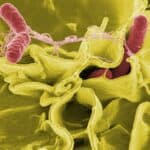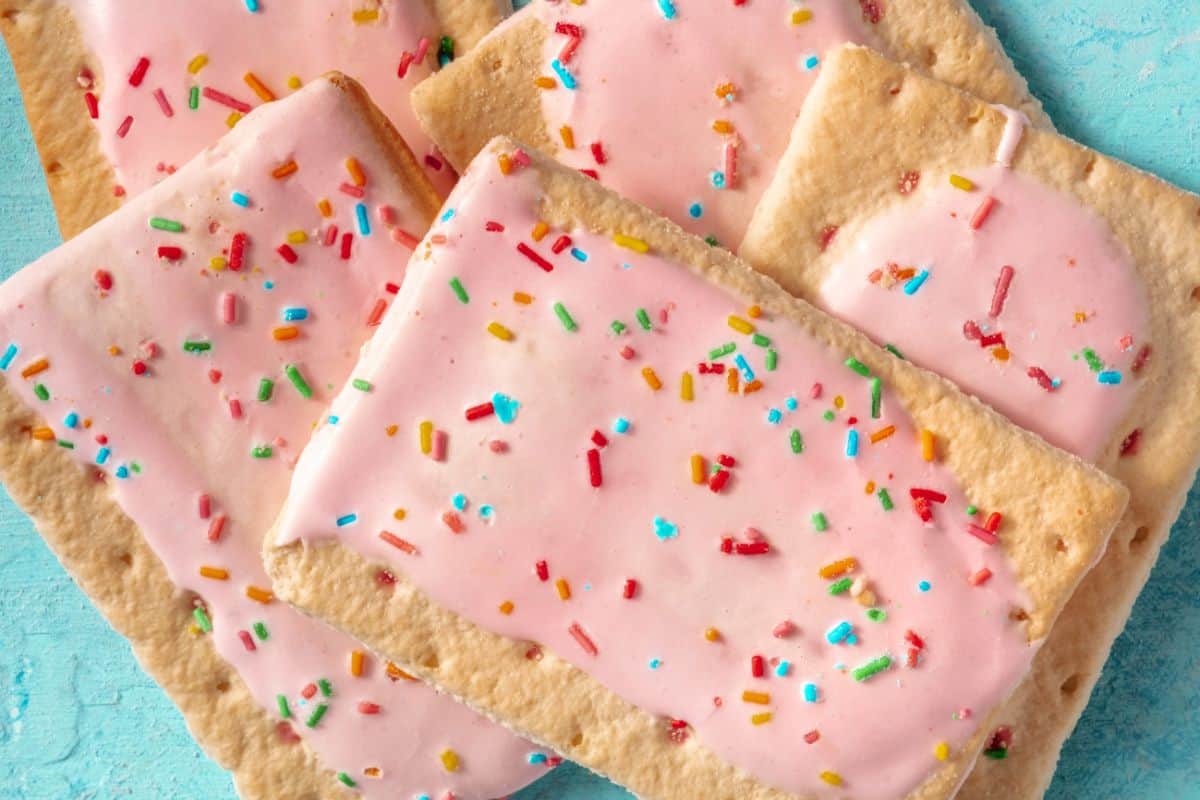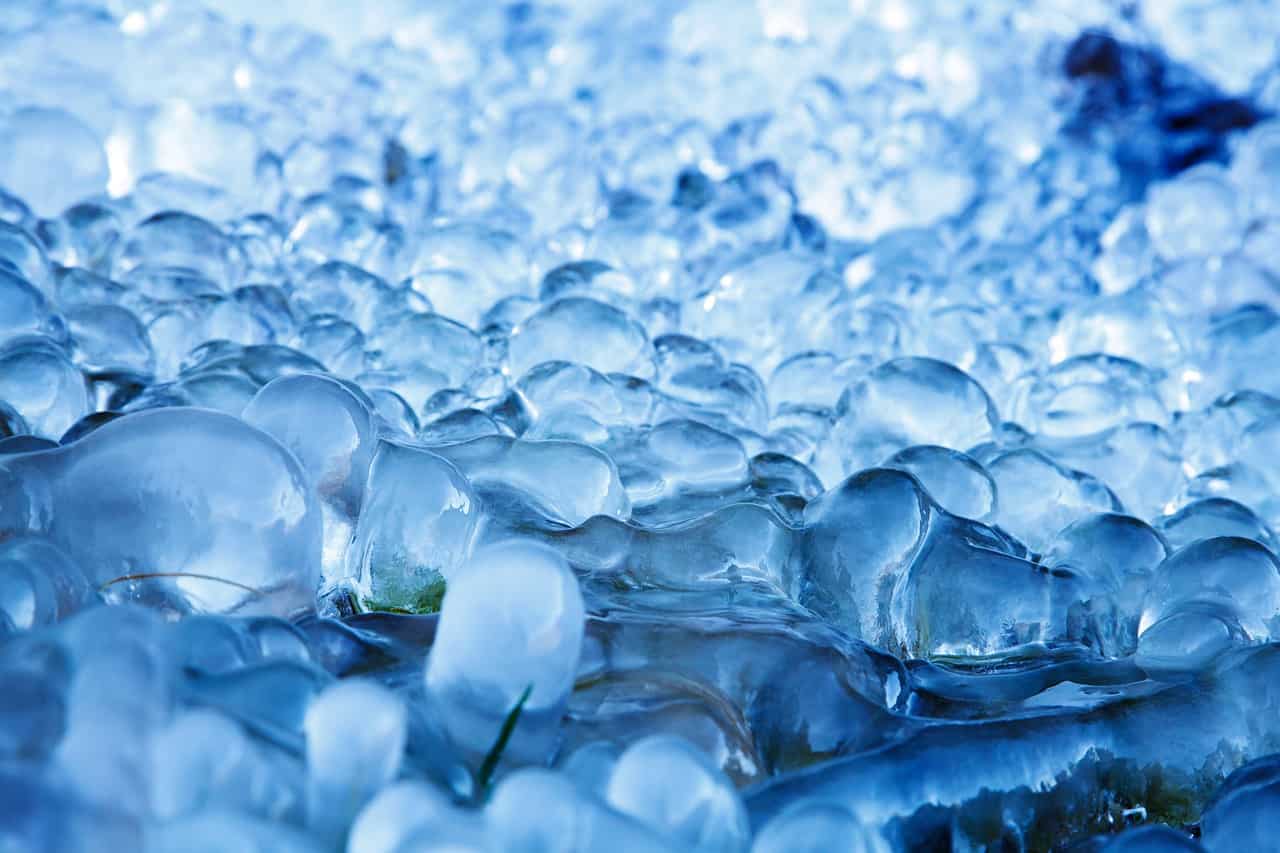We often want to quench our thirst with freezing water on a hot summer day. The cooling effect leaves one feeling great and rejuvenated. Most of us use frozen tap water if purified water is unavailable.
But how safe is frozen water? It depends on its nature before it is in the freezing compartment. If it was purified before freezing, then it is safe to drink. Otherwise, it may still contain some bacteria if it had been contaminated.
Freezing water does not in any way kill bacteria. Freezing can stop the reproduction of the bacteria but does not eliminate its presence. As long as it is in a frozen state, the bacteria will not multiply since it is not active.
However, the bacteria become active once the water is removed from the freezer. The available moisture from the environment allows the bacteria to reproduce and multiply in numbers. Therefore, frozen water is unsafe to drink unless it was already purified before freezing.

Does Freezing Water Kill Bacteria
Many people resort to various methods of ‘cleaning’ water to avoid illness, including boiling or using chemicals. Some people have a misconception that freezing water makes it safe to drink.
Bacteria do not die when frozen; they remain in a state of hibernation. When necessary conditions are availed, the bacteria will become active again.
Although freezing can damage the cells of parasites, it cannot destroy the cells of bacteria which are much smaller and can withstand freezing temperatures. Researchers have discovered many live bacteria in the Arctic that are thousands of years old.
In a frozen state, the number of bacteria will be minimal in your water since there will be no reproduction and multiplication. Nonetheless, the danger remains since the bacteria will become active once the correct temperature is achieved. Avoid drinking frozen water if you are not sure of its safety.
Bacteria can withstand very harsh temperatures. The best solution to eliminate them is using chemical means or heat. Therefore, before freezing your drinking water, ensure it is adequately boiled. In any case, purified water is readily available in most places.
Also, chemical disinfectants are readily available in the market and can help purify your water. However, ensure to follow the manufacturer’s guidelines for effective purification of the water. However, this method may have an impact on the taste of the water.
Here’s a video you should view to examine frozen water from microscope:
Does Freezing Water Purify It
The process of crystallization involves the expansion of water. Therefore, when you put the water in the freezer, the water expands to form ice. In the process, the crystal from ice formation will break the cell walls of parasites available in the water.
However, this process only kills larger cells; therefore, freezing may kill some germs and parasites in your water. However, bacteria are much smaller and will withstand the crystallization process. Only a small number of bacteria can be destroyed by freezing – it is almost negligible.
Therefore, although freezing may kill some larger parasites and germs, it cannot be approved as a means of purifying water. The freezing process can only be used to stop the reproduction and multiplication of parasites.
As stated, freezing only makes the parasites in the water hibernate. Once the proper environment is available, the parasite will become active and continue reproducing.
Freezing cannot be accepted as a proper way of purifying water that is perceived unclean. Harmful bacteria such as E.Coli and salmonella will survive freezing. Once reactivated at the correct temperatures, the bacteria will be active; if ingested, they will harm your body.
Boiling will be a safe and easy alternative to purifying water. Most of the bacteria are destroyed at temperatures above 70 degrees Celsius. Nonetheless, although boiling will kill the bacteria in the water, some harmful chemicals may still be present in water.
Therefore, water purified through industrial means remains the safest option for your drinking water.
Does Putting Tap Water In The Fridge Kill Bacteria
It is important to note that freezing should not be employed to kill bacteria. Bacteria can withstand freezing temperatures. Only a tiny percentage of the bacteria in your water will be destroyed when the water is frozen.
If the water is placed in the fridge, the results are the same but worse. Notably, in the freezer, the bacteria in the water will not reproduce and multiply.
Therefore, the frozen water will contain a minimal amount of bacteria. However, the bacteria will multiply in the fridge since there is moisture and the temperatures are below freezing point.
Bacteria thrive under the right temperature and moisture content. Although the fridge may be cold, the temperatures will not stop the bacteria from reproducing and multiplying. As such, it should not be considered a proper way of purifying your water.
In most places, tap water is usually free from bacteria and protozoa. Before the water is pumped to your tap by the local authority, it has already been sterilized using chemical means. Unless the piping system has contamination, the water is considered safe to drink.
Putting your tap water in the fridge will not kill the bacteria. Therefore, ensure that your water is free from contamination before you put it in the refrigerator for safe drinking.
Does Freezing Water Remove Chlorine
Chlorine is used mainly to kill harmful microorganisms in the water. However, it has an unpleasant smell and taste, and most people dislike drinking chlorinated water. Unfortunately, freezing will not eliminate the chlorine inside your drinking water.
Although chlorine may escape during water expansion, most of it will remain in the water. If you need water that is free from chlorine, look for water that has been purified using reverse osmosis. Almost all chlorine is removed in this process due to the carbon filters.
Also, distillation removes chlorine in the water. However, this is mainly employed on an industrial level. At home, you can boil your water before consumption. Boiling speeds up the evaporation process of chlorine from the water.
Important Facts
- Freezing does not kill bacteria in contaminated water
- Freezing cannot be adopted as a means of purifying your drinking water
- The fridge has moisture and has a favorable temperature necessary for bacteria multiplication
Final Thoughts
Bacteria can withstand extreme conditions and, therefore, will survive in a frozen environment. Freezing contaminated water will not make it safe to drink. The bacteria will become active once the thawing process starts.
Water from the fridge is also not safe. The refrigerator has an environment that allows bacteria to reproduce and multiply. Therefore, only store purified water in the refrigerator.
Before drinking water you are unsure of its safety, boil it, then freeze it. At least you will be sure that it’s safe from parasites. Fortunately, tapped water is considered safe since it has already been chlorinated in the reservoirs before pumping.





